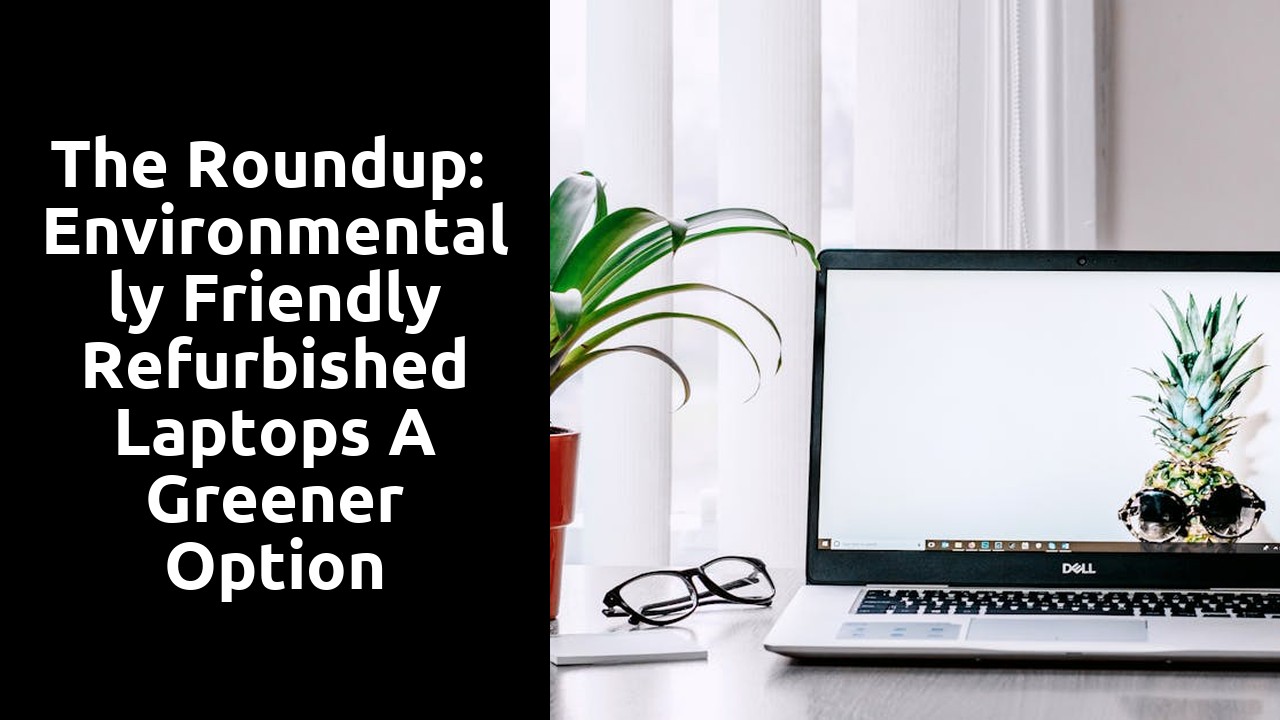
The Roundup: Environmentally Friendly Refurbished Laptops A Greener Option
Extending the Lifespan of Electronic Devices
Extending the lifespan of electronic devices is a crucial aspect of reducing our environmental impact. By investing in refurbished laptops, consumers have the opportunity to use tech products for longer periods, thus minimising the need for frequent replacements. This not only saves money in the long run but also reduces the overall carbon footprint associated with manufacturing and disposing of electronics.
Refurbishing laptops allows for the extension of their usefulness, giving old devices a new lease on life. It enables individuals and businesses to make sustainable choices by opting for refurbished options rather than constantly purchasing new electronics. Embracing this approach not only benefits the environment but also contributes to a more circular economy where resources are kept in use for as long as possible.
Prolonging the Usefulness of Tech Products
One key aspect of sustainable technology practices is the extension of the usefulness of tech products. By prioritising the refurbishment of laptops and electronic devices, we can significantly reduce the environmental impact associated with manufacturing new gadgets. As consumers, choosing refurbished laptops not only supports the circular economy but also helps in minimising electronic waste.
Extending the lifespan of tech products through refurbishment aligns with the principles of sustainable consumption. When we opt for refurbished laptops, we contribute to reducing the demand for new resources and minimise the carbon footprint linked to electronic production. Embracing refurbished electronics as a greener option not only benefits the environment but also promotes a more eco-conscious consumer behaviour.
Environmental Impact of Electronic Waste
Electronic waste poses a significant threat to the environment due to the vast amounts of toxic materials it contains. When improperly disposed of, these electronics release hazardous substances into the air, water, and soil, leading to pollution and damage to ecosystems. The improper handling of electronic waste not only harms the environment but also poses risks to human health, highlighting the urgent need for sustainable disposal and recycling practices.
Unlike biodegradable waste, electronic devices do not decompose naturally, contributing to the accumulation of waste in landfills. This perpetual cycle of discarding obsolete electronics exacerbates the environmental impact, as valuable resources are lost and energy-intensive manufacturing processes remain in demand. By refurbishing laptops and other electronic devices, we can extend their usability and reduce the amount of waste destined for disposal, thus playing a crucial role in mitigating the harmful effects of electronic waste on the environment.
Mitigating Pollution Through Laptop Refurbishment
When electronic devices reach the end of their life cycle, they contribute significantly to environmental pollution. The disposal of laptops, in particular, leads to harmful substances seeping into the soil and water, posing serious risks to both humans and wildlife. This is where laptop refurbishment plays a crucial role in mitigating pollution and reducing the detrimental impact of electronic waste on the environment.
By refurbishing laptops, we can divert these electronic devices from ending up in landfills and incinerators, thus diminishing the amount of e-waste generated. This proactive approach not only aids in reducing pollution but also conserves valuable resources such as metals, plastics, and other materials used in the production of laptops. With proper refurbishment processes in place, we can contribute to a cleaner and healthier environment while also extending the lifecycle of these gadgets.
Supporting Circular Economy Initiatives
When it comes to supporting circular economy initiatives, opting for environmentally friendly refurbished laptops is a step in the right direction. By choosing refurbished devices, we actively participate in the recycling and reuse of electronic products, contributing to a more sustainable economic model. This move not only helps in reducing electronic waste but also promotes a culture of responsible consumption that is vital for the preservation of our planet.
Furthermore, refurbished laptops showcase how technology can be used in a more eco-conscious manner. By extending the lifespan of electronic devices through refurbishment, we lessen the need for continuous production of new gadgets, ultimately decreasing the demand for raw materials and energy consumption. Embracing this approach not only benefits the environment but also encourages manufacturers to adopt more sustainable practices throughout the entire product lifecycle.
Fostering Sustainable Consumption Practices
Fostering sustainable consumption practices can play a significant role in reducing electronic waste and its harmful impact on the environment. By choosing refurbished laptops over new ones, consumers can contribute to a circular economy that prioritises resource efficiency and waste reduction. This conscious decision not only minimises the demand for new electronic products but also extends the lifespan of existing devices, aligning with the principles of a greener and more environmentally friendly approach to technology consumption.
Moreover, supporting refurbished laptops encourages manufacturers to invest in refurbishment initiatives, creating a market for sustainable products and services. This shift towards a circular economy not only benefits the environment but also promotes responsible consumer behaviour. By making environmentally friendly choices when it comes to electronics, individuals can actively participate in the movement towards a more sustainable future, where the longevity and reusability of tech products are prioritised.
Related Links
Review: Environmentally Friendly Refurbished Laptops A Sustainable ChoiceA Historical Perspective on the Environmental Impact of Refurbished Laptops
5 Environmentally Friendly Refurbished Laptops You Should Consider
Why Choosing Refurbished Laptops Supports Environmental Conservation
Why Refurbished Laptops are Environmentally Friendly